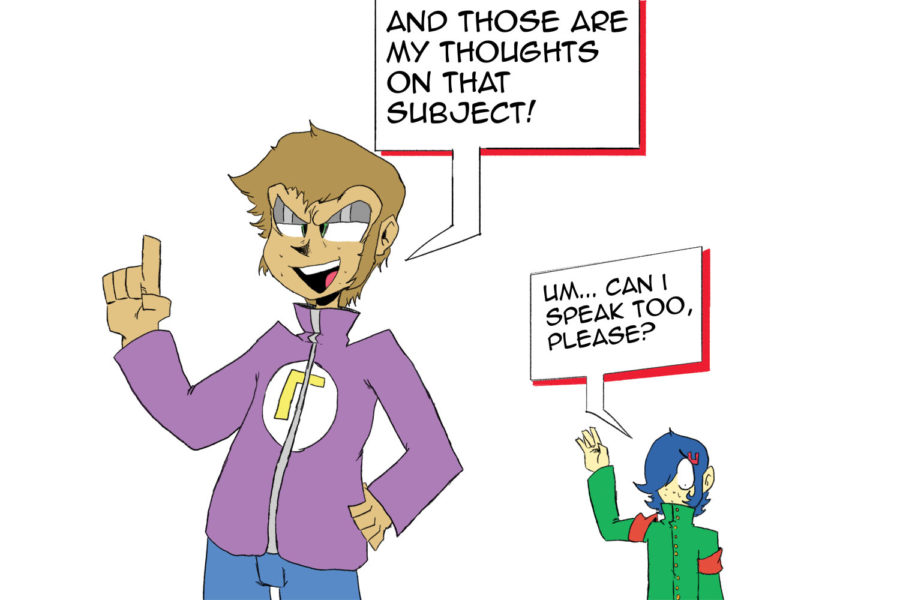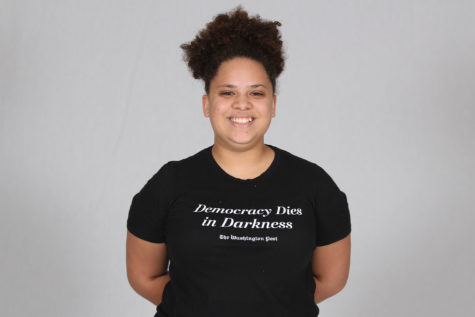Class discussions lack diversity in student perspectives
May 23, 2019
We’ve all been through it. Whether it be in a festival panel or a classroom discussion on social issues. Mostly everyone has grimaced through someone else’s long-winded comment.
In classrooms especially, it is easy to become “that guy”—the one who always pipes up to share a view or opinion. It’s often dreaded when “that guy” raises their hand, and they become viewed by others in the class as a nuisance. But is this negative perception justed?
For me, the issue of self-expression in class is something of a double-edged sword. While I believe that productive discussion about important topics is vital to becoming a more well-rounded individual, I’m also easily fatigued by the debates and discussions that are had in classrooms.
These debates are often bogarted by “those guys,” making it di cult for a diverse array of perspectives to be heard.
Often, the offending individuals in classroom discussions do not lack good intentions or interesting ideas—they
lack a certain situational awareness. Most Socratic seminars and similar activities begin the same way. ere’s a long stretch of silence. One brave soul breaks the silence, and the discussion typically runs more smoothly from there. These activities run into problems, however, when the same handful of people continues to pipe up. is turns a well-intentioned classroom debate into a monotonous exchange of the same ideas from the same people.
For many of us that dread “that guy” in class, the animosity does not stem from vast ideological differences or resentment; it stems from the resulting debate’s lack of productivity. I still want to hear from “that guy” in class, just as I want to hear from all my classmates on issues that they’re passionate about. I just want to ensure that each classroom is a place where all students feel at liberty to pipe up and express themselves, and not just a select few.
The best way to ensure a balance of expression in class is for a teacher to encourage and incentivize participation. For many teachers, this means making comment in class discussion a grade. is is a wonderful first step in the direction of making the classroom a more open and enriching space for all students.







